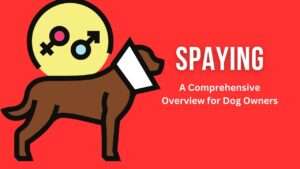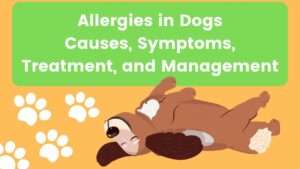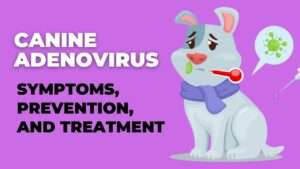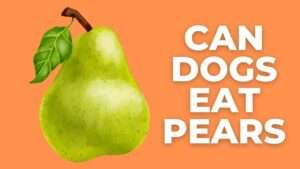Curious about whether your canine companion can munch on cabbage alongside you at dinner? While dogs often have a knack for sniffing out our meals, the question of whether cabbage is safe for them can leave pet owners pondering. Delve into this crunchy conundrum as we explore the potential benefits, risks, and safe ways to incorporate cabbage into your furry friend’s diet.
Contents Overview
What is Cabbage
Cabbage is a leafy green or purple vegetable known for its crisp texture and distinctive flavor. It belongs to the Brassica family, which includes broccoli, kale, and cauliflower. Cabbage is commonly used in salads, coleslaw, stir-fries, and soups, and it’s packed with vitamins, minerals, and antioxidants that offer numerous health benefits.
Nutritional Value of Cabbage
Cabbage is a nutritional powerhouse, offering a range of vitamins, minerals, and antioxidants essential for good health. It’s low in calories and high in fiber, making it an excellent choice for weight management and digestive health. Additionally, cabbage is rich in vitamin C, vitamin K, and folate, which support immune function, bone health, and cell growth. Its antioxidant content helps protect the body against oxidative stress and inflammation, contributing to overall well-being. Incorporating cabbage into your diet can provide a nutrient boost and promote optimal health.
Can Dogs Eat Cabbage?
Yes, dogs can safely eat cabbage in moderation. It’s a nutritious vegetable that can be a healthy addition to their diet. Cabbage is low in calories and contains beneficial nutrients like vitamins K and C, fiber, and antioxidants. However, feeding too much cabbage to dogs may cause digestive upset, such as gas or diarrhea, so it’s important to introduce it gradually and monitor their response. Additionally, cooked cabbage is preferable to raw cabbage, as it’s easier for dogs to digest. Always consult with a veterinarian before adding any new foods to your dog’s diet to ensure it’s suitable for their individual needs.
Potential Benefits of Cabbage to Dogs
: Incorporating cabbage into your dog’s diet, in moderation, can offer several potential benefits:
- Digestive Health: Cabbage is high in fiber, which can aid in digestion and promote regular bowel movements in dogs. This can be particularly beneficial for dogs with gastrointestinal issues or constipation.
- Weight Management: Due to its low calorie and fat content, cabbage can be a great addition to a dog’s diet for weight management or weight loss, helping them feel full without adding excess calories.
- Antioxidant Properties: The presence of antioxidants like vitamin C in cabbage can help reduce inflammation and oxidative stress in dogs, potentially lowering the risk of chronic diseases.
- Dental Health: The crunchy texture of raw cabbage can help promote dental health in dogs by naturally cleaning their teeth and gums, and reducing plaque and tartar buildup.
Potential Risks and Precautions of Feeding Cabbage to Dogs
While cabbage can offer various potential benefits for dogs, it’s essential to be aware of the potential risks and take necessary precautions when feeding it to our furry friends. Understanding these risks can help ensure the safety and well-being of dogs.
Digestive Upset: One of the primary risks associated with feeding cabbage to dogs is the potential for digestive upset. Cabbage contains high levels of fiber, which, when consumed in excess, can lead to gas, bloating, and diarrhea in dogs. Introducing cabbage gradually and in small amounts can help minimize the risk of digestive issues.
Goitrogenic Properties: Cabbage, along with other cruciferous vegetables like broccoli and kale, contains compounds known as goitrogens. These compounds can interfere with thyroid function and may lead to hypothyroidism in dogs if consumed in large quantities over time. While cooking cabbage can help reduce its goitrogenic properties, it’s essential to limit the amount fed to dogs, especially if they have thyroid issues or are prone to thyroid problems.
Risk of Choking: Feeding cabbage to dogs in large, uncut pieces or stems can pose a choking hazard, especially for small breeds or dogs prone to gulping their food. Always chop cabbage into small, manageable pieces or shred it to reduce the risk of choking.
Pesticide Residue: Cabbage, like many other fruits and vegetables, may contain pesticide residues if not properly washed or sourced from organic sources. These residues can be harmful to dogs if ingested in large quantities. To mitigate this risk, always wash cabbage thoroughly before feeding it to dogs or opt for organic varieties when possible.
Safe Ways to Feed Cabbage to Dogs
Let’s explore some safe ways to feed cabbage to dogs.
- Wash Thoroughly:Before serving cabbage to dogs, it’s crucial to wash it thoroughly to remove any dirt, debris, or pesticide residues. Rinse the cabbage under cold running water and pat it dry with a clean towel.
- Cut into Bite-Sized Pieces:To prevent choking hazards, always chop cabbage into small, bite-sized pieces before feeding it to dogs. Cutting the cabbage into manageable pieces also makes it easier for dogs to chew and digest.
- Cooked vs. Raw:While dogs can safely consume both cooked and raw cabbage, cooking it can help reduce its goitrogenic properties and make it easier for dogs to digest. Steaming, boiling, or lightly sautéing cabbage until it’s soft can be a safer option than feeding it raw.
- Introduce Gradually:When introducing cabbage into a dog’s diet for the first time, start with small amounts and gradually increase the serving size over time. This allows dogs to adjust to the new food and helps prevent digestive upset or adverse reactions.
- Monitor Portion Sizes:Cabbage should only be given to dogs in moderation, as an occasional treat or supplement to their regular diet. Monitor the portion sizes of cabbage fed to dogs, especially those with sensitive stomachs or thyroid issues, and avoid feeding large quantities at once.
- Mix with Regular Food:Incorporate cabbage into your dog’s regular meals by mixing it with their usual food. This can help mask the taste of cabbage for picky eaters and encourage them to eat it without resistance.
- Serve as a Snack or Treat:Alternatively, you can offer cabbage to dogs as a standalone snack or treat. Simply place bite-sized pieces of cooked or raw cabbage in their food bowl or offer it to them during training sessions as a healthy reward.
- Observe for Reactions:After feeding cabbage to dogs, observe them closely for any signs of digestive upset, allergic reactions, or other adverse effects. If your dog experiences vomiting, diarrhea, or any other unusual symptoms, discontinue feeding cabbage and consult with a veterinarian.
When to Avoid Cabbage to Dog
- Thyroid Issues: If your dog has thyroid problems or is prone to thyroid issues, it’s best to avoid feeding them cabbage due to its goitrogenic properties.
- Sensitive Stomach: Dogs with sensitive stomachs may experience digestive upset, such as gas or diarrhea when fed cabbage. Avoid feeding cabbage if your dog has a history of gastrointestinal issues.
- Allergic Reactions: Some dogs may be allergic to cabbage or develop allergic reactions after consuming it. Watch for signs of itching, swelling, or hives, and avoid feeding cabbage if your dog shows any allergic symptoms.
- Recent Surgery: If your dog has undergone recent surgery or is recovering from a medical procedure, it’s advisable to avoid feeding cabbage as it may be difficult for them to digest.
- Pesticide Exposure: If you’re unable to source organic cabbage or if you suspect pesticide contamination, it’s safer to avoid feeding cabbage to your dog to prevent potential health risks from pesticide residues.
Safe and Suitable Alternatives of Cabbage for Dogs
Carrots, green beans, and spinach are safe and suitable alternatives to cabbage for dogs. These vegetables are low in calories, rich in nutrients, and easy to digest, making them excellent options for canine companions. Carrots provide beta-carotene for eye health, green beans offer fiber for digestion, and spinach offers vitamins and minerals for overall well-being. When introducing new foods to your dog’s diet, always start with small amounts and monitor for any adverse reactions.
Bottom Line
In summary, while dogs can eat cabbage in moderation, it’s essential to consider potential risks such as digestive upset and thyroid issues due to its goitrogenic properties. By following safe feeding practices, such as washing thoroughly, cutting into small pieces, and introducing gradually, pet owners can offer their furry companions the potential health benefits of cabbage while minimizing any adverse effects. Always consult with a veterinarian before making significant changes to your dog’s diet or if you have any concerns about feeding cabbage to your furry friend.



































+ There are no comments
Add yours